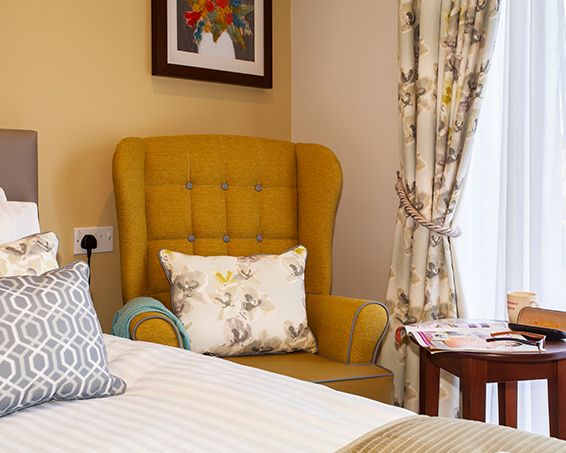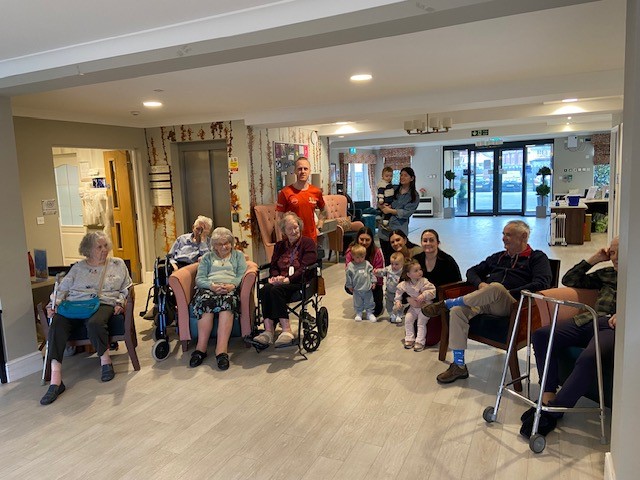How Much Does a Care Home Cost?

With the care home population expected to rise by 127% over the next 20 years and average UK care home fees being some of the highest in Europe, the affordability and accessibility of quality care options are becoming a critical concern for individuals and families. Due to the variety of services and facilities offered at care homes, those seeking care might need help to determine the actual costs associated and the most fitting type of care for their individual needs.
In this blog, we will discuss further the average care home fees in the UK and what is covered by these costs.

How Much Does a Care Home Cost in the UK?
When searching for a care home, the location and type of care home significantly influence the fees involved. Areas like London come with a high cost of living, consequently leading to higher care home expenses compared to regions like the North East of England, for instance.
What is the Least Expensive Type of Long Term Care?
Typically, the least expensive type of long-term care is residential care. Whilst respite care will probably end up costing less overall because of the length of stay, if it was provided long-term, the average care home fees would be much higher. This, however, is dependent on individual circumstances and other contributing factors such as location, funding etc.
What Does the Fee Arrangement of Care Homes Involve?
The fee arrangement of care homes depends on the specific care home. Certain care homes and nursing homes in the UK offer fixed-term payments on a weekly or monthly basis, while others operate under a 'pay-as-you-go' arrangement.
Not all care home fees are the same for each service. Residential care fees are less than more specialised care like nursing home costs. It is also important to note that some fee arrangements in care homes only cover the care, food and accommodation fees and additional charges will be applied for additional services like beauty, activity programmes and social outings.
However, some care homes offer an 'all-inclusive' approach, covering everything in the fee you pay, yet the flat fee rate is slightly higher.
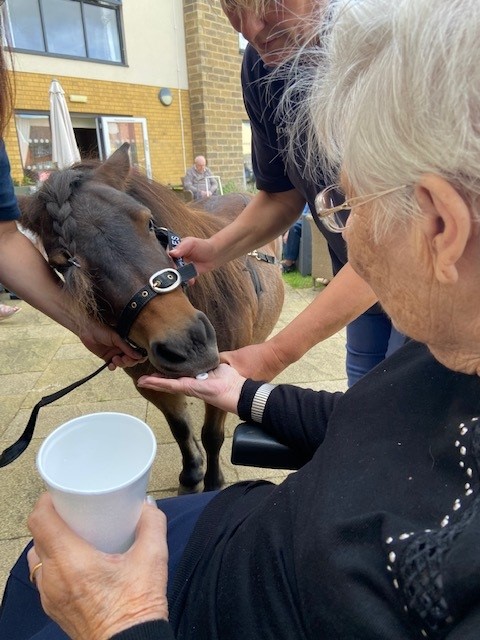

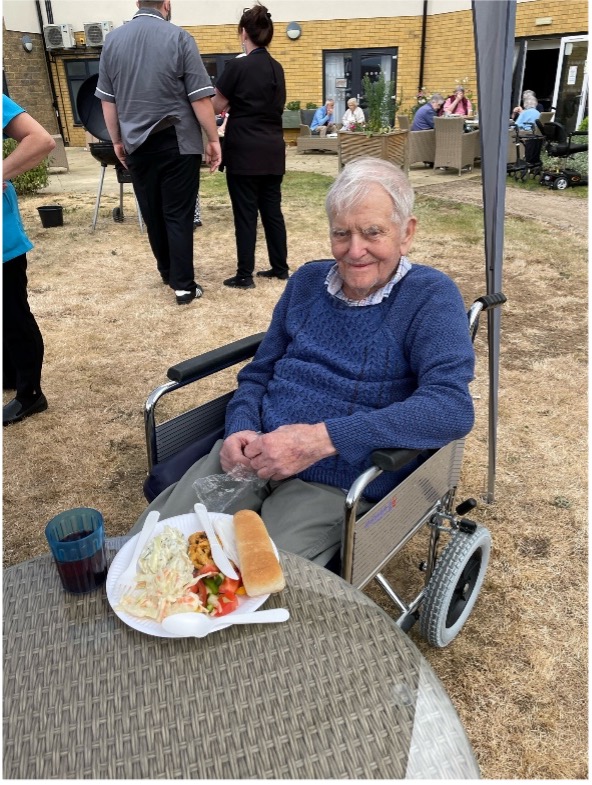
Residential Care
The fee arrangement related to residential care covers all personal costs including accommodation and meals. This care service is ideal for those who require additional help with day-to-day duties like cooking, cleaning and washing and for those who don’t want to worry about household tasks in their own home. It is also perfect for those who would benefit from the companionship that a group living environment offers.
The cost of residential care is usually offered at a flat rate. To find out more information regarding the cost of residential care, speak to the care home manager to find out if extra services like laundry, newspapers and housekeeping are included within the rate.
Nursing Care
When an individual requires more one-to-one assistance, particularly in terms of medical care, opting for nursing care is the preferred choice. While the UK nursing home costs are higher than residential care, the fee arrangement includes accommodation, support services, meals, and around-the-clock nursing care delivered by qualified professionals.
Respite Care
Another service provided is respite care, designed for short-term support, typically used during recovery from illness or surgery.
Respite care also serves as a valuable choice for caregivers seeking additional support, offering them a break while ensuring their loved one receives top-notch care. Given its short-term nature, weekly respite care expenses may cost more.
Dementia Care
Dementia care is a specialised service that requires a skilled team to assist individuals with varying extents of the condition. The dementia care home costs are typically higher than residential care but can cost less than nursing care depending on the needs of the individual.
However, as a progressive condition, over time dementia residents may need to be relocated to a nursing home or unit. In a dementia care home, the interiors and signage are distinct in design and decoration, with activities that are specially designed for individuals living with dementia. These activities include music therapy, reminiscence therapy, and sensory engagement.
What Do Care Home Fees Cover?
Care home fees include a variety of services and amenities based on the specific care you need. These costs generally include accommodation, meals, personal care, medical support, and daily activities. However, these fees can vary, so it's crucial to enquire about the offerings of the particular care home and any potential additional fees you should be informed about.
All-Inclusive Care Homes
All-inclusive care homes are gaining popularity in the UK due to their convenience. These homes cover all services including meals, accommodation, personal and medical care, and social activities under one fee.
While the cost of all-inclusive care homes is higher, it eliminates worries about hidden expenses or extra charges for those receiving care. With the rising cost of living, managing care fees at home can be overwhelming, yet all-inclusive care homes provide the necessary support without the hassle of managing bills.



Who is Responsible for Paying Care Home Expenses?
The individual requiring care home services is usually responsible for paying the expenses. However, if affordability is an issue, the local authority might offer financial aid based on the person's financial assets, especially if they fall below a certain threshold.
When considering care home options, it's crucial to assess your financial situation and consult a financial advisor for guidance on potential financial aid.
Is it Possible To Receive Financial Assistance for Your Care Home Expenses?
Financial assistance for care home expenses is available based on your financial situation. You can apply for a means test through local authority funding to determine if you qualify for help based on your assets and income. In England, the council generally helps to pay for care costs if you have savings of less than £23,250
If you have significant healthcare needs, NHS Continuing Healthcare (CHC) funding is an option after an assessment by a medical professional such as a social worker, care home manager or GP.
Another route is the deferred payment scheme with your local council, where they cover your care costs and recoup the funds from your estate later. To know what's possible, seek help from a financial advisor and assess your finances before selecting a care home.
Local Authority Funding
Local authority funding refers to the assistance provided by the local government for individuals' care home or nursing home expenses. This support involves a means test, evaluating the individual's assets and income. If eligible for funding, the local council covers the essential home fees, although the specific amount varies among councils. In some cases, partial care cost coverage might require a top-up fee if expenses exceed the council's contribution.
Typically, council funding addresses care costs exclusively and does not extend to personal expenses like beauty treatments, personal items, or social activities. It's important to note that not all care homes accept local authority funding and may solely accommodate private-paying residents.
NHS Funding
NHS Continuing Healthcare funding, often referred to as NHS CHC, is a support package for individuals with substantial healthcare requirements. This funding addresses nursing home charges and related health costs. Unlike local authority funding, this NHS-provided nursing care isn't subjected to means testing, it's determined through an evaluation by a multi-disciplinary team.
Eligibility depends on an individual's healthcare necessities, focusing on those with 'primary health needs' such as severe disabilities, long-term health conditions, diseases, or terminal illnesses. Beneficiaries receive complete coverage for care costs, covering accommodation, meals, personal care, nursing support, and additional healthcare expenses.
However, qualifying for NHS Continuing Healthcare funding isn't assured, so it's advised to explore alternative options like local authority assistance or deferred payment agreements.
Self-Funding Your Care Costs
Certain individuals are capable of independently financing their care needs without external support. In this case, they take complete responsibility for covering their care expenses, including both personal and medical care.
Prior to exploring nursing homes or care facilities, it's essential to assess your financial situation to ascertain your ability to manage payments within your chosen residence. Fees differ based on factors like location, size, amenities, and the range of care services provided.


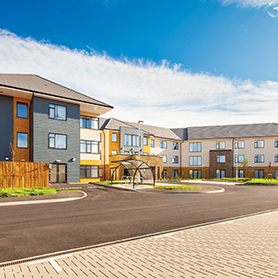
Receive Outstanding Care at Penrose Court Care Home
Penrose Court Care Home is situated in Biggleswade and is a private, luxury care home that offers care services such as Nursing Care , Residential Care, Dementia Care, Respite Care and Palliative Care. We offer a supportive and all-inclusive environment that caters to the needs of each care home resident whilst ensuring they pursue their hobbies and interests.
At Penrose Court Care Home, we focus on establishing strong relationships with residents and their families to provide personalised care and a meaningful life. We engage residents with diverse activities and offer various facilities including a hair and beauty salon, a private garden, a cinema room and much more.
Find Out More
If you have questions about the expenses of our care or the services available at Penrose Care Home, feel free to reach out to us. You can email us at info@penrosecourt.com or call 01767 777000. Additionally, you can complete our online form located on our contact page, and one of our team members will promptly respond to your enquiry.

